- Home
- Trevor Hoyle
The Gods Look Down Page 18
The Gods Look Down Read online
Page 18
‘Not all of them,’ Qābal said, setting the boy down on the floor of the temple. ‘Only the chosen ones.’
12
Cytogenesis
They turned on to the vinyl path which led to the artificial lake in the centre of the campus. A grove of plane trees spread their branches over the water’s edge and further out the sun sparkled in a swathe of tiny glittering crescents. The Director said, ‘Have you considered the implications? There are still a few scattered sects who take Biblical scriptures as gospel. How are they going to react to the idea that one of their most revered objects was a plant for making protein?’
‘What about the fact that it was capable of killing people? And did do more than once.’
‘I don’t see how they can square that with their beliefs.’
‘They won’t bother,’ the mythographer said. ‘If they read the survey at all they’ll reject any evidence which conflicts with accepted religious dogma. You can’t argue with faith, Johann; it might even serve to strengthen their conviction that the Almighty works in mysterious ways His wonders to perform.’
‘Yet we know the machine existed: we now have positive proof.’
‘They’re not interested in mytho-logical proof, only the religious kind.’
They had reached the lake and stood together looking out across the sparkling water. It was pleasant here, with just enough of a breeze to make it cool without feeling chilly. Queghan’s height wasn’t as noticeable out of doors, but walking with Karve always made him feel slightly uncomfortable: the old man was diminutive in comparison.
‘We never did solve the central problem,’ Karve said, leaning on his stick.
‘You mean about the Ark?’
‘Where it came from. How it got there. Who built it.’ He shook his head. ‘I find that irritating.’
‘I find it bloody annoying.’
‘The symbols have to mean something.’
‘I’m sure they do but I can’t decipher them. Perhaps they stand for “Life”. Maybe it’s as simple as that.’
‘Then why the double “F”?’
Queghan breathed out slowly and said reflectively, ‘I have the nasty suspicion we’ve been out-foxed, out-guessed, out-thought.’
‘By Dagon?’
‘Yes, by Dagon. But which one?’
Karve smiled suddenly and his eyes behind the polarized bifocals held a wicked gleam. ‘I suppose it’s occurred to you, Chris, that other Biblical texts might benefit from mythological interpretation?’
‘No it hadn’t.’
‘It would be a lifetime’s labour and you’d have hardly scratched the surface: the burning bush, the parting of the Red Sea, the healing of the sick, the resurrection of Christ … the Bible is a fascinating source of mytho-logical study.’ The Director chuckled and gazed across the water, the breeze catching stray wisps of his long grey hair and blowing them over his ears. Out here in the sunlight he looked older and more vulnerable, a tired fragile man leaning on a stick.
‘I don’t suppose there’s any record of a surviving race of Dagonites,’ Queghan said, skimming a pebble across the low choppy waves.
‘Not as far as I know. Why do you ask?’
‘The survey contained the implication that Dagon’s line didn’t end with his death – his daughter Meria was with child, remember. What became of it?’
‘You should ask Dr Dagon. He’s the expert on Biblical texts. If the line continued he should know about it.’
Queghan was sceptical. ‘Do you think he’d tell us?’
They were both silent for a while, then Karve said, ‘Remember how we talked about the possibility of cytoplasmic mutation: the deliberate malformation of cell nuclei? There’s a research paper in the current Inter-Disciplinary Review dealing with cytogenics, written by Professor Mulder of the Department of Genetics. I’ll let you have it.’
‘I can’t see how that will help us.’
‘Neither do I,’ Karve said frankly. ‘But there’s still a mystery waiting to be solved and I don’t know where to go next. Do you?’
Queghan skimmed another stone. He was thinking of the structure analysis and the equation which had predicted that a Saviour on one side of the spatio-temporal interface would balance out with – on the other side in Minus Time – the Anti-Christ. Had Meria’s child been that mythical figure? If so it would reconcile, in a curious sense, some of the contradictions which till now had baffled them. For if the Christ and Anti-Christ were brought into close alignment in the same historical context the end result would be – nothing. They would cancel each other out just as a particle and its anti-particle equivalent would do were they to collide, in a burst of radiation. And this would quite neatly explain why in Dagon ben Shem Tov’s transcription of the Biblical texts there was no Saviour at all: plus one/minus one = zero.
But the price of accepting such a hypothesis was a heavy one, even if it did seem to fit the known facts. It led to the inescapable conclusion of there having been at some time in the remote past the baleful figure of the Anti-Christ. Dagon’s line, just as he had prophesied, had carried on, and this presented the mythographer with a new set of questions. How and where and in what form had the Anti-Christ become manifest on Old Earth? Many thousands of years ago there had been a severe disruption of the historical process which the texts hinted at but never made explicit. The mysterious presence of the Ark and who had placed it there were part of the enigma, as were the hypothetical descendants of the god Dagon. So what did it all mean? Was the vital piece of missing information to be found in The Book of Splendours or the Kabbalah Denudata or even in the Bible itself? Queghan was reaching helplessly and hopelessly into the dark.
Karve turned and squinted into the sunlight. ‘Which thread are you following, Chris? Dagon ben Shem Tov’s alternative version of history or the offspring of Meria’s unholy union?’
‘My own intuition mostly. Have you ever stopped to wonder, Johann, what would have happened if Dagon had succeeded in founding a new religion?’
‘History would have followed another course.’
‘And?’
‘Christ would never have been born.’
‘Wouldn’t He? Are you sure about that?’
The Director glanced at him, frowning. Strands of grey hair stood up in the breeze.
‘Wasn’t it Dagon’s intention all along to create a Saviour?’ Queghan said. ‘Isn’t that what Dagon ben Shem Tov tried to do by means of the Aleph?’
‘He tried and failed,’ Karve said.
‘Did he?’ Queghan picked up a pebble and tossed it from hand to hand. ‘How do we know that he failed? If we follow Dagon’s world-line on the structure analysis chart we find that it extends into a region of probability – events which might or might not have taken place. In a region of indeterminacy anything is mytho-logically possible.’
‘But, Chris, what you’re suggesting is …’ Karve tapped his stick on the vinyl path; he wasn’t prepared to entertain the notion.
Queghan said, ‘We can’t prove or disprove that Meria’s offspring actually existed – but if it did and the line continued what became of them? How and in what way did they affect history Anno Domini?’
He tossed the pebble into the lake and watched as it plopped below the surface leaving a pattern of concentric circles spreading ever outwards.
*
Professor JND Mulder stepped down from the cyberthetic scanner and removed the blueprint from the retaining clips. He looked at it critically for a moment, lips compressed, two deep vertical lines extending from the bridge of his nose to intersect with those on his forehead. His face had so accustomed itself to this habitual frown that he seemed to be sternly concentrating even when he was relaxed and in repose. He was a fairly tall man, in his early fifties, with a pale unhealthy complexion which the deeply etched frown lines did nothing to improve. Professor Mulder was an expert in cytology, the study of the structure of living cells.
Queghan had waited several minutes already wh
ile the Professor looked at the blueprint in the scanner, viewing it in plan, elevation and isometric projection. Now he folded his arms and said quietly, ‘What do you think? Can it be done?’
Professor Mulder scratched his chin, an operation which brought more deep furrows into play and froze them like hieroglyphs chiselled in stone. He said, ‘Short answer, yes. Theoretically.’
‘The good old standby qualification.’
‘Must be, mustn’t it? Never made one of the blessed things.’ He put the blueprint on top of the console which housed the cyberthetic input terminal and scribbled something in the corner. ‘Where did this come from?’
‘It was cyberthetically processed from an old manuscript.’ This evasive explanation would have to satisfy: he wasn’t prepared to relate the whole story chapter and verse. ‘So it is feasible. And is there enough information to work from?’
Professor Mulder led the way across the laboratory to a bench near the window on which several sheets of the written specification were scattered; it had now been transferred from the print-out and resembled the more familiar engineers’ working plan. ‘I should think so. Why do you want to build it?’
‘To see if it will work.’
‘To produce single-cell protein? What on earth for?’ Professor Mulder ran his finger down one of the sheets and made another notation. The backs of his hands, Queghan noticed, were lightly freckled.
‘I haven’t a practical application in mind. It’s more in the nature of a research project.’
‘Highly sophisticated technology, I suppose you know that. Heat-resistant superalloys throughout, refrigerated water condenser, culture irradiation unit, high-intensification light source. It won’t be peanuts. How old is the manuscript?’ he asked suddenly.
‘Old.’
‘Is it secret? You’re very cagey.’
‘No, it isn’t secret. And it isn’t stolen. In any case the patent will have run out by now.’
‘I haven’t seen anything quite like this before,’ the Professor confessed. ‘There’s a closed-environment system which we developed for the Tempus satellite Control Lab which does a similar job but it operates on a different principle. Our device purifies the air and provides cultures which are fertilized by human excreta. But this, as you might say, is a different kettle of fish. The high-intensification light source could present problems, though I suppose we could get round it somehow.’
‘Laser optics,’ Queghan suggested.
Professor Mulder was frowning again. ‘Yes, probably,’ he murmured, thinking of something else, and then said, ‘Do you have any idea why it should include the facility to act at a distance?’
‘I’m not with you.’
‘Here,’ Professor Mulder indicated a paragraph on one of the sheets, ‘it specifies an omni-directional cone for emission of radiation.’ He went to fetch the blueprint. ‘This spherical unit on top houses it in addition to the water condenser. So the equipment could produce single-cell protein and when operational it would also irradiate an area of …’ he gestured vaguely ‘… several square metres at least.’
Queghan watched him carefully. ‘With what effect?’
‘That largely depends on the strength and frequency of radiation and on who or what was within range. It could produce some very nasty radiation burns if anyone was silly enough to go near it. Though why it isn’t adequately shielded I don’t know. Sloppy design.’
‘Perhaps whoever made it had that purpose in mind.’
‘Has it been made?’ Professor Mulder asked, jotting something down as it occurred to him.
‘I meant whoever designed it.’
‘Can’t understand why.’ Professor Mulder chanted some figures silently to himself.
‘Would it always have that effect – spreading, dangerous radiation around during operation?’
‘No, not necessarily. As I’ve said it would depend on the strength and frequency of emission.’
‘This could be pre-selected?’
‘Yes.’
‘And variable?’
‘Oh yes. All you’d need is a program of operation.’
‘Would it affect cell structure?’
‘You mean of a living organism within range of the equipment? I should think most definitely: radiation can cause cancer and it can also heal cancer. It can alter the structure of cells in any number of ways, depending on how it’s used.’
‘Could it produce mutations?’
‘Of course. This is precisely the way in which geneticists do their little fiddly tricks with chromosomes, enzymes and plasmids. Cells are delicately-balanced mechanisms and radiation in all its forms is their greatest enemy. It’s quite easy – almost too easy – to cause distortion of cell structure, though the end result may not be to your liking. It would almost certainly produce a mutation.’
Queghan looked at the specification spread across the bench. The principle he understood, even if the calculations, equations and detailed engineering mathematics were beyond his grasp. The answer was here somewhere, his instinct had never been stronger, and the knowledge of this warmed him like an old pleasant memory. He said, ‘Could the equipment be used to artificially stimulate cell replication? In terms of it affecting the reproductive cycle of a living organism?’
Professor Mulder’s network of intersecting frown lines grew deeper and more permanent. He cleared his throat. ‘Do you mean could it interfere with the process of fertilization?’ He stared blankly at the specification and said finally. ‘Theoretically yes. But again there would be the very real danger of creating a protoplasmic mutation. It would require a great deal of trial and error to find the correct wavelength and strength of emission compatible with the organism you were treating. What had you in mind – bacteria, vegetable?’
‘Human.’
Professor Mulder said severely, ‘You gave me to understand that the purpose of the equipment had nothing whatsoever to do with genetic engineering.’
‘Of which you evidently disapprove.’
‘Yes I do. Fervently.’
‘Isn’t that rather a strange point of view for a cytologist?’
‘My interest is in bacterial cells and how they can be used to aid medical research. I’m not in the business of cloning DNA to produce millions of identical human beings. I find the concept distasteful to say the least.’
He was a man, Queghan observed, who believed in and adhered to rigorous moral strictures. There would be no compromises with Professor Mulder. He said, ‘I haven’t misled you. Until you mentioned that the device was capable of emitting radiation it hadn’t even occurred to me that it could affect the structure of cells. Though now you’ve pointed it out I find it a very interesting phenomenon.’
‘So it appears,’ Professor Mulder said dryly.
‘Tell me something else.’
The Professor looked at him warily.
Queghan thought for a moment. ‘Supposing the device was calibrated in such a way as to produce a protoplasmic mutation at the point of conception. Do I express myself clearly?’
‘You mean could it instigate the reproductive process and, if so, what would be the result?’
Queghan smiled gratefully. ‘That’s what I meant to say.’
Professor Mulder placed his pale freckled hands on his hips, craned his head backwards and gazed up at the ceiling. He rocked to and fro on the balls of his feet. ‘It would be possible – theoretically – but it would very much depend on one vital factor: that the specimen culture, held in a sealed environment, was heterozygous.’ He noted the mythographer’s quizzical look and went on, ‘That’s to say, carrying two distinct types of genes, the donor and the recipient, the one to interact with the other. Do you follow? The culture would remain sterile and non-reproductive until triggered by the emission of radiation at the right strength and frequency. Once the process had been started and the culture fertilized, cell replication would proceed in the normal manner—’
He stopped abruptly as if the meaning of
his own words had just become apparent to him. He seemed somewhat bemused.
‘Has the experiment ever been tried?’
‘Not to my knowledge.’
‘What would be the outcome?’
Professor Mulder was scribbling again. ‘Difficult to predict. If the process didn’t abort – which is more than likely – it would eventually, after a period of gestation, create a protoplast: the single specimen of an original archetype.’
‘In other words a new species of life?’
‘A different species, certainly. One that hadn’t been seen on this or any other planet before.’
The mythographer leaned against the bench and gazed unseeingly into the middle distance. He said abstractedly, ‘So it isn’t just a plant for making protein after all …’
‘Where did all this come from?’ Professor Mulder demanded suddenly, indicating the blueprint and specification. ‘The technology is within our reach but the concept of creating a protoplast by means of radiation acting on cell structure is unheard of. Who thought of it?’
Queghan didn’t say anything.
‘You won’t tell me?’
‘I can’t tell you, Professor, because the truth is I don’t know myself. The blueprint and specification were cyberthetically processed from texts many thousands of years old which are themselves a record of a machine which existed in Biblical times on Old Earth; make of that what you can.’
‘Do you actually propose to build this fermentation and fertilization equipment?’
Queghan slowly nodded.
‘Why? For what reason?’
‘It might help to solve a mythological riddle.’
‘An expensive way of solving riddles. You think it’s that important?’
‘I think it is.’
Professor Mulder turned away dismissively. ‘You know my attitude towards any kind of genetic engineering.’ He turned back and his face was a pale bleak mask, heavily lined and impassive. ‘My advice would be not to proceed any further with this. It could have disastrous consequences, apart from which the ethics of the project are extremely dubious. You would be creating a new life form, something totally alien with no natural birthright. It would have no ancestry except for a laboratory culture fertilized by high-energy radiation. Imagine if it turned out to possess intelligence – to be an intelligent creature that could think and reason and observe its environment. Have you considered what its feelings might be knowing itself to be unique, the only one of its kind in the entire universe? It would have no past and very little future.’ He had become quite passionate, his eyes bright and hard.

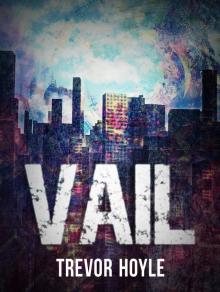 Vail
Vail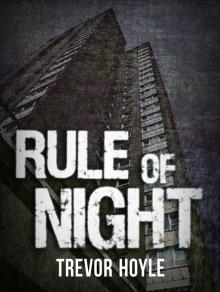 Rule of Night
Rule of Night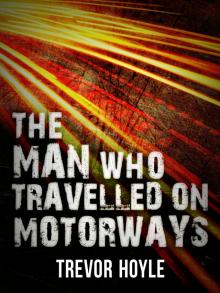 The Man Who Travelled on Motorways
The Man Who Travelled on Motorways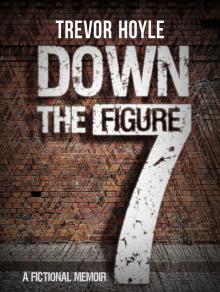 Down the Figure 7
Down the Figure 7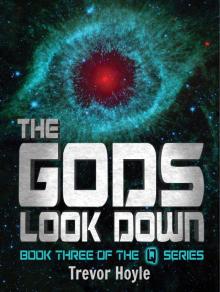 The Gods Look Down
The Gods Look Down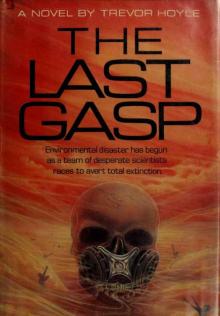 Last Gasp
Last Gasp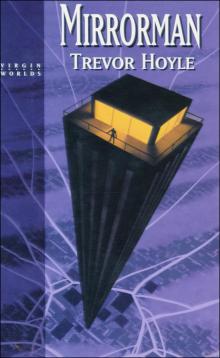 Mirrorman
Mirrorman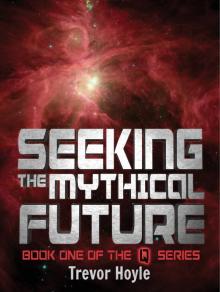 Seeking the Mythical Future
Seeking the Mythical Future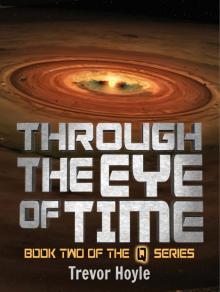 Through the Eye of Time
Through the Eye of Time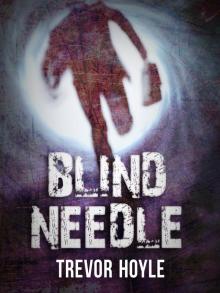 Blind Needle
Blind Needle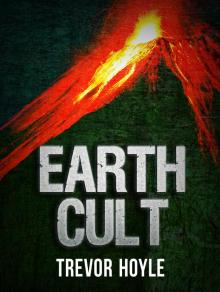 Earth Cult
Earth Cult